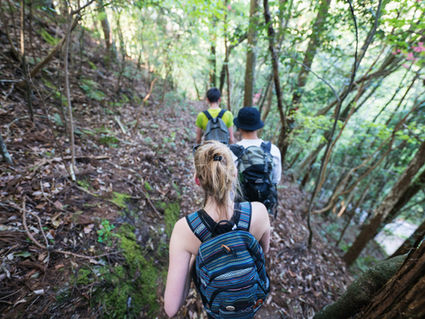
JAPAN
TREK THE HIGH PEAKS OF THE JAPANESE ALPS
Mt Okuhotaka & Mt Yarigatake
Hike hut to hut, bag two summits, wake up in the clouds, soak in hot springs and hit the bright lights of Tokyo.
Summit Mt Okuhotaka (3190m) and Mt Yarigatake (3180m) are two of the five highest peaks in Japan. Tackle the Daikiretto Gap - Japan’s most exhilarating and notorious non-technical hiking traverse. Experience mountain hut living Japanese style - tatami mats, futons and steaming ramen a-go!
May 28
Cheesecake, figs, and pinot noir.


Tour Type
Walking Tour
Group Size
Up to 10
Minimum Age
18 Years
Duration
9 days / 8 nights
Fitness Level
Medium
HIGHLIGHTS

Enjoy a day in Tokyo before speeding up to the Alpine region by bullet train.

Head up the steep rocky alpine tracks in a challenging hike to a mountain hut.

Enjoy local hospitality and delicious food staying in traditional Ryokans.

Hike through the Daikiretto Gap then head for the summit of Mt Okuhotaka

Relax tired muscles in the natural hot springs of an outdoor communal bath
ITINERARY

INCLUSIONS
INCLUDED
Arrival transfer
Train/bus to the Alps
9 Nights Accommodation
All Breakfasts, 5 lunches and 6 dinners
Services of an English-speaking guide
Helmets and harnesses for the Daikiretto Gap
National park permits and fees
Individualised pre-trip training program
EXCLUDED
International & domestic air tickets unless added
Meals and beverage not already mentioned
Early check-in and late checkout hotel charges
Visas
Personal travel insurance
Expenditure of a personal nature such as drinks, souvenirs, laundry, topping, etc.











